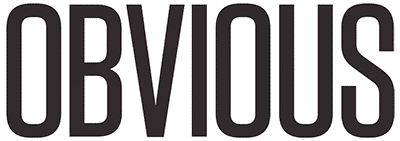“The more connected you are to yourself, the more connected you are to any character.”
– Zak Barnett
When it comes to working in entertainment, be it as a model or actor, style is vital. Style doesn’t always mean having designer fashion. It means wearing your look with confidence and emanating your energy when in the room. It also means diversity and inclusion, principles Hollywood Acting Coach, Zak Barnett, fully embraces.
At Zak Barnett Studios, they specialize in “acting for the whole self.” They focus on the connection between life experience, spirituality & meditation, and honing your self-expression and craft. We sat down with Zak to discuss this approach to training talent in Hollywood – a city where ego and expectation can often stand in the way of success.
Los Angeles is the mecca for models, actors, and aspiring talent. What sets Zak Barnett studios apart, and how do you help clients book gigs?
The ZBS curriculum focuses foremost on the art, craft, and profession of acting while integrating deep personal developmental work drawing on the themes of activism and spirituality.
We look at acting more as a martial art – a self-study and application that is done in service to one’s personal well being, as well as to the healing of the audience and society at large. This results in actors that extremely connect themselves, know who they are, and how they want to influence the world. This kind of work breeds charisma, and a heightened presence, or as we say in Hollywood, “star quality.”
There are eleven teachers currently at the studio that come from very diverse backgrounds. Many acting studios are structured with one master teacher and then a series of “mini-me’s.”
I was very clear in starting the studio that if this is my life’s purpose, which I believe it is, I want to be surrounded by the absolute best teachers I could find. All of us have at least twenty years of experience studying the craft of acting — many of us, including myself, have over twenty years teaching it. That said, the thing that unites us is the organizing principle of the studio, “The more connected you are to yourself, the more connected you are to any character.” There is a defined curriculum, with each class meeting an industry need, as well as a more artistic and personal development need.
I had a teacher once say, “If you know three things, you will see three things in a script. If you know a million, you will see a million, because essentially you are seeing yourself.” Our goal is to expand the student’s awareness in their life, so the characters they create are as complex, vibrant, and layered as they are.
I think many acting studios may keep some of these elements as their goal, but none I’ve encountered gives you the path to getting there. For instance, an actor may hear, “Just be yourself.” The problem is, telling someone to “be themselves” is like saying someone to “Just let go” when they’re stressed out. There is a “how” to learn to “just be yourself” and our curriculum structures that out.

What are some of the biggest challenges for new talent to break into the industry today?
I’d say the biggest obstacle is an actor’s lack of willingness to take advantage of the opportunities they do have. Of course, the competition is ridiculous — and it always has been. Platforms have increased — both in terms of the number of projects produced and the actors’ ability to easily create their own content — thus defining their own opportunities. Actors are often used to being directed. If they’re willing to take their careers into their own hands, opportunities abound.
What are the common mistakes talent makes when trying to establish themselves in Hollywood?
Thinking it will happen quickly. The old Hollywood adage, “It’s a marathon, not a race.” comes to mind. The truth is, it’s a marathon where the finish line keeps extending. If you hang in there, your career will most often fall into place — almost always in a way you hadn’t expected. But if you’re like 99.9 percent of actors, that unexpected path towards success will be long after the first or hundredth time, you strongly consider giving up.
It’s staying power, humility, and your ability to connect with people authentically, which leads to success. Your talent alone is not enough. People need to want to help you because you’re the real deal and in it for the long haul.
Your focus is on “the whole self.” What does that mean for the actor?
It means a few things: Actors have to use every part of who they are —their minds, bodies, voices, emotional and spiritual lives, imaginations, language, and ability to connect to other human beings.
Collectively, all of these elements conspire to create a world–a world that exists for one moment in time, and never will again. This takes tremendous self-awareness and skill and a knowledge of how all of these interweaving aspects affect one another.
For instance, if I start raising my voice when speaking with you, my emotions will rise as if I’m in an argument, my body will respond, and my imagination will seek to support all of this with a story that defines my point of view or “character.”
A “Whole Self” approach means that your personal development is linked with the development of your craft, achieved by asking the right questions.
One of our philosophies at the studio is, “An artist is defined by the questions they ask themselves.” These questions live under the broader themes of activism, spirituality, and entertainment. While I don’t have the answers for anyone in regards to these questions, I know the process of asking them helps the actor define their singular truth —and that singular truth is what makes them magnetic, and full of purpose.

Tell us about the design of the space itself. You’ve gone to great lengths to use style to create a different experience for your students.
Yes! We want to take actors out of the dark, dirty spaces they’re often relegated to and bring them into an environment that would ignite their imagination and reflect back to them their value.
Our initial space on the second floor we’ve had coming in on five years. I originally wanted the studio to be on a bluff in Malibu. Since that wasn’t going to happen, we made each of the studios a different natural environment.
We have the ocean, the forest, the desert, and outer space–for when you need a broader perspective 😉 It’s designed as a nurturing and empowering space, intended to ignite the actor’s imagination–much like nature itself.
The downstairs we just built out in the last year, and it is more “of the world.” Each studio embodies one of the studio’s main themes: Activism, Spirituality, and Entertainment. We have another catchphrase at the studio–“An artist is defined by the questions they ask themselves.” We focus on these themes within the studio because while we don’t have the answers for anyone in regards to these themes, we do know these are the questions to ask to help an artist define their singular artistic voice, purpose, and magnetism.
And I should say loudly and boldly for all the world to hear, my life partner Darrin Banks is the genius designer that put the space together. I’m the demanding customer, who speaks in concepts–he speaks in ideas, colors, and textures, and enjoys things like the container store, so he’s the one to talk to.

Tell us about the newly launched membership program and what it offers students.
I should start by saying that we will continue to offer classes, private coaching, etc. in the à la carte way we always have. Membership is simply a more economical way for committed actors to develop over a more extended period.
Membership has been something we’ve wanted to do from the very beginning. As “A Whole Self Conservatory for the Working Actor,” we bring together many of the services and training an actor needs to be successful, with the practices that help an actor stay sane, grounded, and connected to what makes them most unique and magnetic.
We offer two distinctive versions: one designed for actors that live in or around L.A., called the “L.A. Membership,” and one designed for actors that live outside of L.A., called the “Jetsetter Membership.”
Our “L.A. Membership” emphasizes weekly class as the primary component, accented with audition coaching, role prep, intensives, community events, and mentorship.
Our “Jetsetter Membership” is designed for actors that live outside of L.A., that are either trying to transition into the LA Market, or have no intention of leaving where they are, but want quality, ongoing training.
Its primary component is Skype coaching, and it’s accented with our weeklong intensives, mentorship, classes, and community/industry events when the student is in town.
The program just kicked off with a launch event featuring our first panel for members which allowed actors to have direct access to top writers, producers and showrunners including Dailyn Rodriguez (WGA Winner, EP & Showrunner: Queen of the South); Stacey Osei-Kuffour (Emmy Nominated Co-Writer: Pen-15); Korin Williams (Emmy Nominated, Co-EP: Roots); Micah Schraft (Co-EP, Mrs. America and Jane the Virgin); Christian James Durso (Executive Producer/Creator: The Stranded); and Molly Margraf (Executive Producer/Creator: Dead Girls Detective Agency.) These panels will be an added benefit to our members ongoing.

Lastly, what role do your program and your position in the industry play in promoting diversity and inclusion?
It’s interesting hosting these kinds of conversations on our panels and trying to figure out how. The last big one we had before the launch event was called “The Wonder Women of Hollywood,” and I facilitated a conversation during the height of “#metoo,” with a dozen accomplished actresses ages 20-75, some of which had been nominated for Emmy and Academy awards.
Inputting together my notes, I realized the tremendous responsibility I had in being the only man on the panel – and serving as a Co-Host! I realized that I just needed to be an example of how to listen. Or try to be.
I feel like there are few road maps to conversations about inclusion. What we know is they make us feel uncomfortable, and if we don’t walk towards that discomfort, we make the world a smaller and more unjust place. I think these types of conversations put us at the edge of our capacity and willingness, and then ask us to take more risk for the sake of our collective well-being.
Now the fact that these conversations are taking place with these specific people–people that are creating the stories and characters that help define and shape our culture is a tremendous opportunity and responsibility.
The human race is glued to devices around the world, trying to find themselves and process their pain through the stories Hollywood tells.
Asking the culture-makers to take risks, empathize more, have difficult conversations, find a community, so they want to help protect and provide community–I don’t know what work is more important.
Its funny actors, writers, directors will often say, we’re not curing cancer here. I’d venture to say helping someone process their life and feel not alone, helping respond to and shape our cultural values, is actually on a similar level of importance. We’re not curing cancer, but we are providing hope, solace, belonging, and a strong sense of direction to a world that is pretty darn overwhelmed.
For more info, visit https://www.zakbarnett.com.
Want the latest posts, offers, and exclusive content straight to your inbox? Subscribe to our newsletter and never miss out again. See more Culture.


